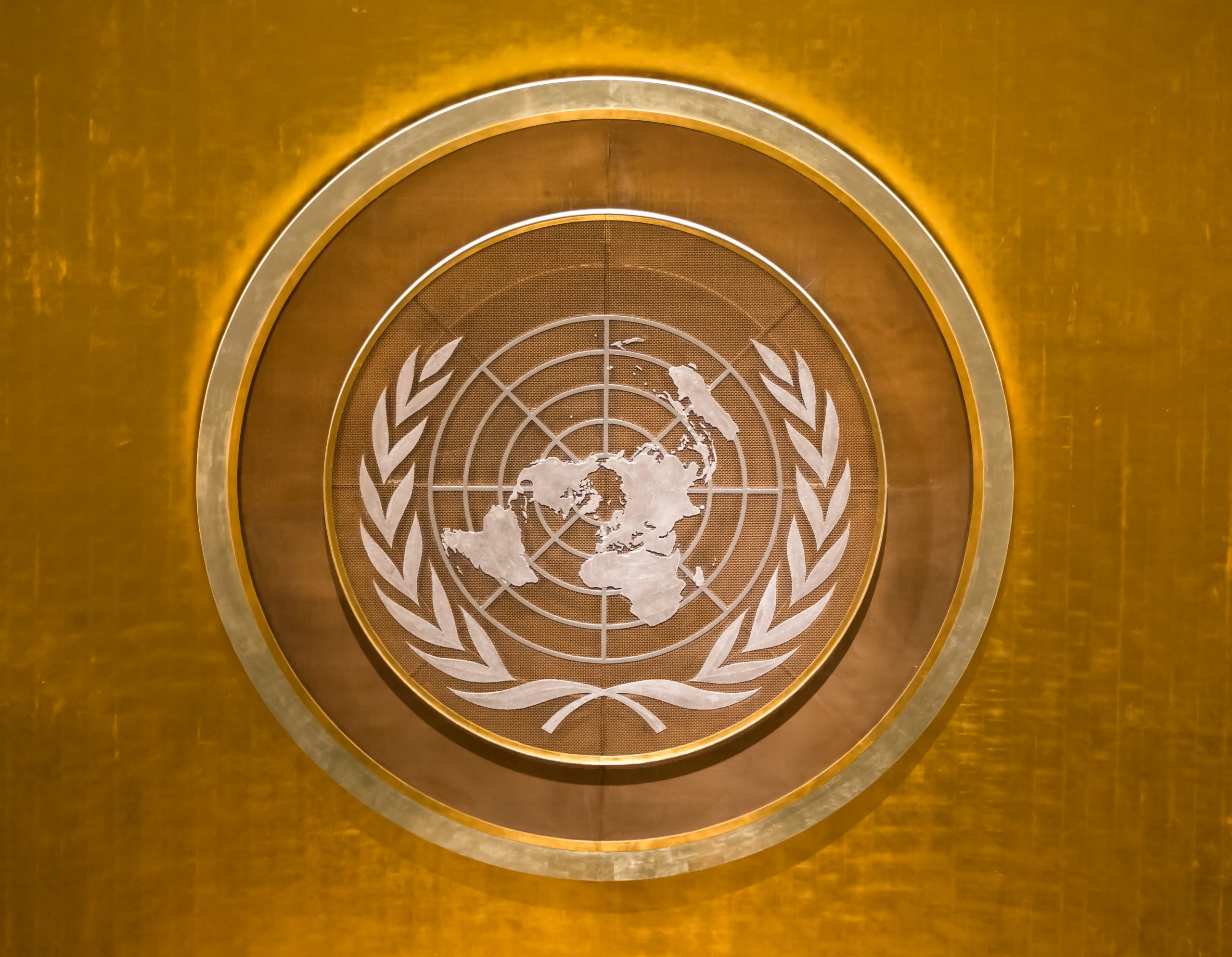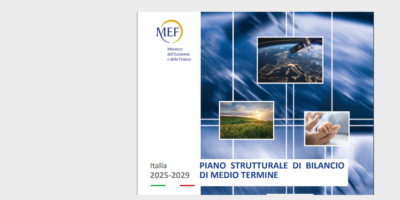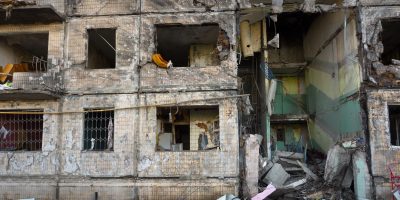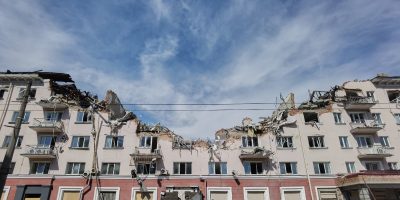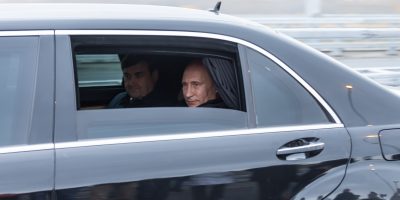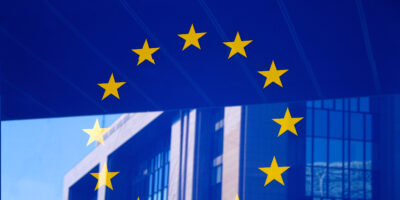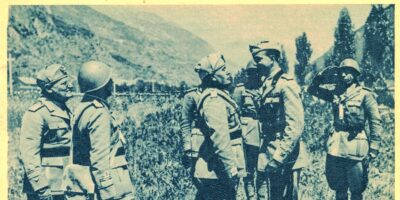Regardless of the war’s outcome, a gaping void between East and West will prevail for a long time
Resurgent imperialism, extreme nationalism and mighty rearmament are among the long-lasting consequences of the ongoing war in Ukraine that, by virtue of its ferocious intensity, has taken the world by surprise.
Humanity was just about to recover from an epochal disease that swept across continents and a war erupted in the coal mining, industrialized, Ukrainian regions of Donetsk and Luhansk invaded by the Russian Army, de-facto resuming a dormant conflict in those separatist regions. The war of aggression has spread quickly throughout the country and large cities like Odessa and Mariupol have been targeted with the intent of annihilating and terrorizing civilians through wanton destruction, creating a gigantic wave of refugees in the heart of Europe.
As the conflict is unfolding, we see Ukraine exhibiting heroic resistance. There is a high toll of misery and death among civilians, but the propaganda machinery seems well in place, and it’s not one-sided only. Patriotic rhetoric is being used to continue the invasion, to amass troops and weaponries, and to destabilize the coalitions of the willing, those in favour, and those against war.
Rampant militarism is on the rise along with projected military spending and no country in Europe seems immune to the heavy rearmament syndrome. Germany alone announced commitments to defence spending for 100 billion euros in 2022, doubling its annual budget. The UK, France and Italy followed with similar moves, complying with NATO demands. The planetary heavy rearmament race has just begun, in a quick turnaround. As military spending goes up, it is inevitable to ask to whom it is a benefit: Cui prodest? The answer would be clearly pointing towards the military industry as the list of war profiting corporations is well known. But for those in command, the rationale for a military build-up is always the same: Investments in national defence and security. Doesn’t matter if this isn’t people’s priority.
The occurrence that building trust among people and nations would better serve international security is not even considered by political leaders at this time. After all, why bother with soft power and negotiation skills when you can buy tanks?
Putin’s aggression is the result of a miscalculation, an ill-fated perception of the enemy’s weakness, and is also the consequence of a what a disgraceful combination of autocrats, old-styled apparatchiks and sycophants can do.
One could say that this was an unprovoked, surreptitious assault against human wellbeing and security. It could be true, but even bystanders are not exempt from guilt. On the western camp, no visionary leadership is in sight to propose alternatives based on human dignity and real values. Lack of understanding of respective positions and grievances has already caused two consecutive world wars. The inability to listen and to keep the dialogue going is the main cause of terrible scenarios in front of us. There is still time to avert a long period of obscurantism, but ultra-nationalism and militarism are recipes for disaster.
New greed has provoked unprecedented large-scale destruction, with a level of tension between East and West that is rising fast and appears without control. A vast region in the heart of Europe, spread with atomic power plants, is now the battlefield of young military recruits, intoxicated by propaganda and clouded by cheap vodka, which could easily provoke a nuclear accident many times more deadly than Chernobyl. The use of nukes, that we all thought was not even a remote option, is now evoked as a last resort by Washington and Moscow.
The confrontation between Russia and the United States continues to escalate and immediately flared up with verbal accusations, sanctions and forced expulsions–something never witnessed during the Cold War. Europe, through the NATO alliance, followed the US lead and once more demonstrated its total lack of independence, not to mention a common foreign policy. The EU constitutional resolve to uphold peaceful means of change instantly dissolved and no meaningful contribution was given by preventing the conflict’s outbreak. Dispatching armaments, defensive or offensive, to support Ukraine, is the only highly debated question in parliaments, as appeasement scenarios have been long abandoned, dissenting voices are accused of treason, and each country strikes best deals separately for oil and gas with the redemption and blessings of formerly labelled “pariah and terrorist” states.
The prolonged state of siege that Putin is inflicting on Ukraine, nurtured by the new Russian imperialism, is leaving behind hatred, destruction, and a common sense of defeat. Defeat of the new world order but also the demise of democratic ideals that transcend the glow of nationality. Hardly a voice was heard in 2014, among western nations, which would approve a war to prevent Russians retaking Crimea. Now, prospects of a long conflict are hardening the resolve to overthrow the ultimate Leviathan and his imperialist nostalgia. Lessons from Syria, Libya, Sudan, and Afghanistan are yet to be drawn, if ever.
Never has the world faced such a sudden shift in policy, from appeasement to direct confrontation and consequent escalation of threats. Consequences of insensitive moves and wrong signals are right before our eyes.
Now, whatever the conclusion of the conflict will be, a gaping void between East and West will prevail for a long time, with new alliances (Russia and China have never been so close), vital interests and the relinquishment of hard-won international benchmarks and safeguards, such as the non-proliferation of weapons of mass destruction, climate accords, fight on poverty and Sustainable Development Goals—all becoming the victims and unintended consequences of the war.
Peacekeeping and Diplomacy
Restoring peace is however, the one and only overriding priority. The preservation of international peace and human security is the main objective of the UN, and member states should settle their disputes by peaceful means.
Peace agreements are never completely just, but they can be wise. If parties to a conflict had real grievances arising out of previously attempted negotiations, as was the case after the 2014 violence in Donbass and the war of Crimea, they should have been explored and addressed.
The Balkan conflict of the 90s, yet the deadliest war of the second half of the last century, despite all tragedies, unprecedented civilian targeting, ethnic-cleansing, rapes and crimes of genocide, ultimately remained a regional conflict where superpowers were not directly engaged. That allowed for an arms embargo (not fully observed) and led to early diplomatic talks backed up by the UN Security Council. Javier Perez de Cuellar, then UN Secretary-General, promptly established a voluntary peace-keeping force of 25,000 soldiers, initially 11,000, made of 29 nationalities. Its role was primarily to create the conditions for peace negotiation. A peaceful agreement between belligerents remained arduous for a long time, but UNPROFOR, the UN peacekeeping mission, certainly averted further destruction in the first phase of the war. With the ceasefire, the city of Osijek, under constant threat, did not follow the fate of Vukovar, the neighbouring town, sadly known for being obliterated by the shelling. Humanitarian assistance was made possible to large segments of the population in former Yugoslavia, with assistance to refugees too. In addition, an UNPROFOR battalion was sent to Macedonia for conflict prevention. Marginal containment of the war continued until 1995, but many lives were also preserved, and the bastions of civilization kept the hopes of many alive.
A peace-keeping force is certainly not equipped to withstand large scale military offensives, or to prevent mass atrocities, but it is up to the UN to provide a buffer between belligerents, and primarily an indispensable channel of communication and dialogue, the prologue of each peace agreement.
Peace-keeping operations are traditionally put in place after a ceasefire, when a peace settlement is elusive. In those contexts, the presence of a peace-keeping contingent serves to buy time and to control possible conflict escalation. We can credit UN peace-keeping with preventing or at least limiting the amount of armed conflict globally and reducing human casualties. Peacekeeping effectiveness is based on the principles of neutrality and consent of the parties involved. The great virtues of peace-keeping operations are their non-threatening and therefore face-saving character[1]. Exactly what Putin might be seeking for a way out to a long-lasting conflict that is certainly not in the interest of Russia.
The problem is that even if Russia and Ukraine both had an interest in a ceasefire, once the respective strategic objectives are attained–meaning the preservation of its independence and most of its territory for Ukraine–and some territorial gains as a buffer zone for Russia, others would have to approve the dispatch of a sizable peace-keeping force.
The United States Administration so far has not evoked a similar prospect. It might very well be that the US is not seeking compromise but a regime change. The words of United States National Security Advisor Anthony Lake come to mind: “Let us be clear: peacekeeping is not at the centre of our foreign or defence policy. Our armed forces’ priority mission is not to conduct peace operations but to win wars”[2]. Defence Secretary Lloyd Austin seems to echo those words when saying that the US wants “to see Russia weakened”.
However, if adequate pressure were to be put on the parties involved, it is likely that the UN Security Council that failed to condemn Russia for its aggression on Ukraine, would authorize a UN peace-keeping contingent.
That would probably be the most effective way to de-escalate tension between the East and West.
The UN Security Council impasse is not the only cause of failure of the international security system. In the wake of the Russian attack against Ukraine, we all regretted that better use was not made of diplomacy, mediation and common security mechanisms earlier in the conflict to address and resolve historical grievances. There are ways to contain and reverse dangerous situations and provide diplomatic tools to obtain peace. Among them, the techniques normally used by the UN when the Council is not unanimous in its resolve are: good offices, conciliation, mediation and delegation of responsibility to the Secretary-General.
Peace-making and good offices describe the UN Secretary-General’s activities to promote dialogue, facilitate the achievement of agreements and defusing tensions between parties in a dispute. Peace-making itself normally determines the size, scope and duration of the process.
In the case of Russia and Ukraine, what is going on at the negotiation table? Peace-making activities are not visible these days. It is hoped that they are taking place behind the scenes. Silent diplomacy can still bring about positive effects and help craft a deal acceptable to all, ending, or at least suspending, the high intensity conflict.
Already in the 80s, with the UN Security Council paralysed, Secretary-General Perez de Cuellar decided to undertake a political gamble. Gambling was applied on two issues with a high-risk factor: one was the crisis in Afghanistan and the other was in Cyprus. The then-Secretary General won a personal battle carving for himself a key role in mediating among the parties in those crises.
Unfortunately, during the present crisis, the UN role has been utterly marginalized so far. UN S-G Antonio Guterres’ recent and overdue visit to Moscow and Kyiv happened two months too late, and judging from the poor results, its good intention was neutralized by strict protocol, physical distance and the indifference of his interlocutors.
However, the soft power of diplomacy is the only conduit to a lasting peace, and mediation efforts should be renewed at all levels. Negotiators and skilled mediators should work endlessly, side by side. “Peacemakers should fit in one vehicle”, Brian Urquhart said to the author of this article when interviewed about the means to solve conflicts. And he meant it.
[1] Sir Brian Urquhart, former UN Under Secretary-General for Special Political Affairs, described peacekeeping in such terms as “an effective symbol of the new determination to relieve the people of the world of unnecessary conflict, excessive armaments and the constant threat of war”. “Beyond the ‘sheriffs’ posse’” in Survival, Global Politics and Strategies, Volume 32, 1990- Issue 3
[2] Anthony Lake, The Limits of Peacekeeping, The New York Times, 6 February 1999
Donato Kiniger Passigli, Vice-president World Academy of Art and Science. Former United Nations official, served the UN for over 30 years in various senior positions and peacekeeping missions.Donato Kiniger Passigli, Vice-president World Academy of Art and Science. Former United Nations official, served the UN for over 30 years in various senior positions and peacekeeping missions.




